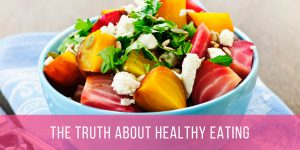Did you get to see The Truth About Healthy Eating on the BBC with Fiona Phillips? I thought it raised some interesting points about whether healthy eating needs to be expensive. We all get fooled by marketing hype into thinking a particular food will do us good but it this true?
Superfoods
Firstly, Fiona compared the nutritional value of “superfoods” to ordinary supermarket staples. The results were that highly expensive goji berries had the same levels of Vitamin C as fresh strawberries (which I prefer), pearl barley and quinoa had no major difference in their release of energy, coconut oil and rapeseed oil had the same properties, as did cabbage compared to kale.
So basically, none of us should fall for the marketing and advertising hype of food companies naming products as “superfoods”. Healthy eating doesn’t have to be expensive. Supermarket basics and local fresh produce can provide all the nutritional goodness that the body needs through a balanced diet.
Are supplements a waste of money?
The programme also examined whether there was actually any scientific benefit from taking supplements i.e. multivitamins etc. The programme’s test results failed to find any significant difference in Fiona’s blood results after two weeks of maximum supplement intake. The scientist involved even suggested that for some people it can be harmful to take supplements. Personally, I have always wondered whether popping a few pills can really make up for a diet lacking in nutrients. The body processes nutrients in a very complicated way. Often one nutrient can only be absorbed or work effectively if it is eaten at the same time as another nutrient. In my opinion, the cost of purchasing supplements would be better spent on fresh fruit and vegetables.
Can Smoothies give you a boost?
The hype around high antioxidant smoothies was also tested in the programme. Unfortunately, the results weren’t favourable for this expensive healthy boost either. The body likes to keep itself in balance, so it will only utilise a small amount of antioxidants and ditch the excess. Whilst I can understand that drinking smoothies excessively could be a waste of money, I still think that if you aren’t good at getting your five a day, then at least one smoothie a day will offer you some nutritional benefit. Perhaps the body just doesn’t absorb the nutrients in liquid form in the same way as when they are whole fruit or vegetables. Could these be higher in fibre and therefore pass through the intestine slower? Any nutritional scientists out there who can answer that question?
Detox Diets
Lastly, the programme tested whether detox diets provided any health benefits. It turned out that the students who just ate a balanced diet* showed much better liver, heart and weight levels at the end of the test than those who did the detox diet. Again, fancy detox supplements and foods appeared to have no real value.
So overall, I think the programme was very effective at pointing out that a balanced diet has far more benefits than supplements, detoxing and stocking up on “superfoods”, which are all extremely expensive. Healthy eating shouldn’t cost more, so don’t be fooled by the marketing hype.
Go eat your VEG!
*the programme’s balanced diet included meat/fish, pasta/rice, fruit/veg, eggs/dairy, wholemeal bread and small amounts of coffee and alcoholic drinks – sounds good to me!


